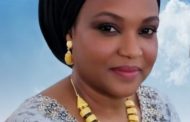It will hardly be surprising if a critical review of Dan Agbese’s biography of Vice-Admiral Murtala Nyako follows the release of the text recently from any quarters in an academic journal. Only such a review will interrogate some of the questions embodied by the narrative, particularly Chapter 16 that deals with the military’s handling of the June 12 crisis. In a country where people serve in government and do not feel any challenge to leave the story of their days in office in relation to leadership training, Nyako’s self-reporting in the Footprints on the Marble is very commendable. It is not whether what he said there are true or false. It is about making available the details so that the sociologists, historians, political scientists, literary philosophers and sundry researchers can feast on it with a view to producing the kind of narratives that can lift the nation from the dismal tunnel the nation is experiencing now to where it ought to be. Such narratives are important because, as they say, reality is what we make of it!
Generally, two moves are discernible in Dan Agbese’s biographical sketch of former naval brass hat, Murtala Nyako. One is biography as a research technique in its own right and one of the richest because of the self-reporting involved. Although this is not likely to be the point of interest about this biography for many readers, it is surely one key contribution the author, Nyako and the text will make to knowledge production in Nigeria. Although the biography will be read and interpreted in a million ways at different times and spaces, there are very good chances that the narrative of Nyako by Nyako as captured by Agbese could prevail over other competing interpretations of the text. Should that happen, then Nyako has made a power move: the power that comes from the language game that defines the biography.

A previous attempt by Agbese
The second move is unveiling Nyako as a subject of uncommon study in hybridity when we are talking of the typical member of the Nigerian power elite. It is worth recalling late Prof Akin Fadahunsi’s witticism about how appropriate it would be for scholars to find out what Obasanjo, Babangida, TY Danjuma, Abdulsalami or Buhari think of Plato, Machiavelli, Marx, Nietzsche and so on. The late Dr. Jubril Bala did something of that sort by interviewing General Babangida for his PhD thesis on hegemony but it is not clear if other scholars have followed that direction. Or, if these military subjects would have been forthcoming if they have been approached. Whichever is the truth, Agbese and Nyako have burst on the scene. Once again, Agbese gets it right by picking on Nyako. There are fewer more qualified than Nyako for anybody looking for a case study of elite psychology in Nigeria. A northerner who rose to the position of naval Chief of Staff, then went on to make a success of gentleman farming before finding himself in politics is certainly a good case study in the crisis of mission of the power elite in Nigeria. This has nothing to do with whether one likes or hates Nyako for whatever reasons but that he has put on the table information that was not in the public domain before now and information that are not documented anywhere else except in his head. Yet, they are details that touch on his journey through vital sectors of the Nigerian space
This review cannot replace the text. At best, it can only try to provide snippets for the potential reader. What the reader comes up against is a hefty text – 457 pages in all, index inclusive across 23 mostly short chapters. A hard headed reader, especially those who might have encountered Nyako before, can be done with it in five hours except if s/he were taking notes. And there are many issues many would certainly want to take notes. It is basically the story of one’s successful staggering through life. Oh yes, Nyako’s is staggering successfully through life. What most readers would find are details of how his life is a conclusive proof for the concept of undecidability in social theory. Nyako had little or no chance of going to school if his father had not died. Nyako who was planning an engineering career when he eventually settled account with Western education found himself in the Nigerian Navy in spite and despite of himself. But things didn’t go that way because some Sardauna planned it all out as many would think. Sardauna’s team had gone to his school but failed to impress the young chap still debating within himself whether to be an Islamic philosopher or some engineer. It was the expatriate teachers and his classmates who pulled him into the Navy.
How a lad with hot temper and who was enacting membership of the Northern Elements Progressive Union, (NEPU) in the First Republic could escape being blocked by the conservative guardians of orthodoxy in those days is part of the mystery of Admiral Nyako’s rise from the rural province of those days to a British trained Naval Officer with literarily the world in his pocket.
Reading Nyako’s biography is also reading about the coming into being of the Nigerian Navy just as it is also about how he was drafted into politics, an arena he calls a jungle. The drafter is not named but it will be no other than Chief Olusegun Obasanjo with whom Nyako was comfortable but not former Vice-President, Atiku Abubakar. But, why na? Anyway, the story of his encounters in the ‘jungle called politics’ are all hanging out there in the text. While his admirers would find the claim that he was a change agent as governor of Adamawa State a great one, his critics would say it is overkill in misplaced use of words. Where might we find the truth of it?
Readers who have ever been charged with the ‘crime’ of troublesomeness, rascality or rebelliousness will enjoy the sections of the text where Nyako dispensed with protocol to get one thing or another done, especially in the Navy but even before then, right actually from the secondary school where he masterminded a coup against royalty in the image of NEPU’s anti-royalty consciousness. So, how did he survive? The myth of the North, of the Fulani, of professionalism or just God being in charge? It will be good to find out by reading the biography and exploding stereotypes.
There are too many stories to read or refresh one’s memories on. In fact, much of the big stories in Nigerian politics, almost all of which involved the military. Reading these stories again is helped by beautiful grammatical constructions that dot the book or the dramatic scenes. Check just two of them out: “He brought that attitude into politics and soon found he was in a different environment where dictatorship of godfathers is worse than institutional dictatorship such as you find in the military”, (p.6). On the next page is another: The old sailor was not about to have the luxury of watching the golden sunset in contented idleness”. As for dramatic scenes, isn’t every chapter from 16 to 23 one?




























